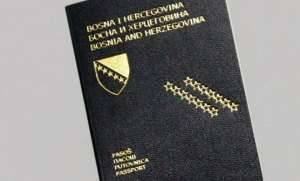SARAJEVO, June 19 (FENA) - The amendments to the Public Procurement Law of BiH should solve the problem of crime and corruption in this segment, as this is one of the major problems in Bosnia and Herzegovina, it was stressed today at the conference "Reform of the Public Procurement System in BiH" organized by Transparency International in BiH, the Anticorruption Network ACCOUNT and the Public Procurement Agency of BiH.
The United States Ambassador to BiH Maureen Cormack stressed the importance of improving the rule of law and the public procurement system in BiH, because this system sometimes is in fact a source of corruption and conflict of interest.
She emphasized that last year she attended a meeting with mayors and municipal mayors in BiH with whom she discussed the problematic processes of public procurement and the appeal process, which very often can postpone or even stop public procurement procedures altogether.
“It is important that public funds are used for public and not for private good, and therefore it is important for all citizens, civil society and progress of the country as a whole to solve the problem of public procurement in BiH,” concluded Ambassador Cormack.
Head of the European Union Delegation to BiH, Lars Gunnar Wigemark pointed out that the European Union has recognized the fact that crime and corruption in the public procurement segment are one of the major problems in BiH and underlined the need for a transparent and reliable public procurement system.
He reminded that as of 2014 onwards, the Law on Public Procurement has been in force in BiH and that the activities on its amendment are in progress in order to solve the fundamental issues from the perspective of the EU, which is that every society and community that has the status of a candidate for EU membership must resolve these issues in its structures.
He welcomed the civil society engagement in activities to further improve public procurement regulations and stressed that within the Public Procurement Agency there is a Working Group focused on amending the Law, and is open to any comments and suggestions from civil society.
“If these are just cosmetic changes to the Law, this is not good and the goal will not be met to comply with the basic principles and standards,” concluded Wigemark.
Director of the Public Procurement Agency of BiH, Đenan Salčin is aware of the fact that a lot of public money, more than three billion KM, is transferred from the public to the private sector and that there is a lot of non-transparent activities.
“The amendments to the Public Procurement Law have enabled a step forward in reducing this kind of activity and in hope to prevent it from happening in the future,” Salčin pointed out.
Salčin also explained that they plan to introduce an inspectorate in public procurement, in order to reduce the conflict of interest, but also monitor the ownership structure.
He also emphasized that other institutions, such as the BiH Prosecutor's Office, the Office for the Review of Appeals and the Court of BiH, must also take part in resolving the problem of public procurement, and that the Agency cannot act in this segment alone.
Director of the Anti-Corruption Network ACCOUNT, Eldin Karić, however firmly believes that the public procurement system at the moment is designed to transfer money from public funds to private accounts.
“The working group formed by the Council of Ministers of BiH tried to introduces some changes and to harmonize the Law on Public Procurement with the EU directives, but, based on what we have seen so far, we are not satisfied because the changes did not go in favor of anticorruption but to make the Law more streamlined and more convenient for contractual parties,” he explained.
The anti-corruption element, as Karić said, has not been implemented because the Working Group considered it was not the time for these changes.
"We will not make any significant progress in the next few years regarding the regulation of public procurement system in terms of anti-corruption practices," he concluded.
A representative of Transparency International BiH, Aleksandra Martinović, as a positive fact in this process, singled out that the civil society, with great efforts, has managed to attend the meetings of the Working Group and have put forward a number of proposals.
“What remains as a problem is a legal aid system that completely favors the bidders, and they are the only ones that can appeal corruption cases that occur on a daily basis in the public procurement procedure,” stressed Martinović.
In the countries of the region, added martinović, such rights are also given to the institutions close to the Public Procurement Agency, auditing institutions, the Ombudsman, while in Serbia there is even the Institute of Civil Supervision that monitors large-value procedures and their implementation.
At the Conference held today, the participants presented the proposals for amendments to the Public Procurement Law drafted by the Working Group to amend the law, as well as proposals by civil society organizations, aimed at increasing transparency and preventing corruption in public procurement system in Bosnia and Herzegovina.
(FENA) S. R.










